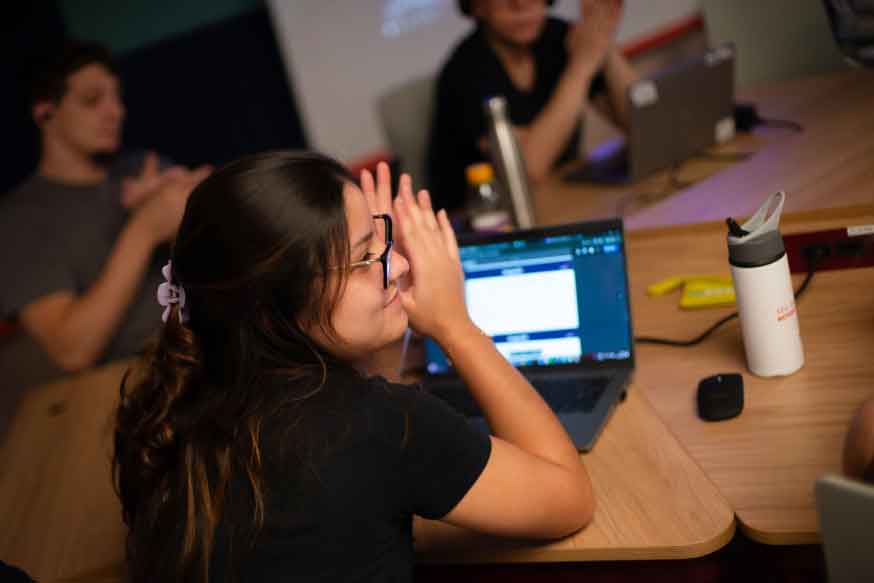
Our aim is to train engineers capable of using scientific and technological knowledge of computing (hardware and software) to develop solutions with economic, environmental, social and ethical impacts on the market and people's lives.
During this incredible learning journey, you will have the opportunity to develop a business vision in areas such as corporate finance, market intelligence, digital marketing and people analytics, as well as working on your socio-emotional skills.

Participate in and manage projects relevant to Computer Engineering, solving problems involving interdisciplinary perspectives;
Analyze and evaluate computer architectures, including parallel and distributed platforms, as well as develop and optimize software for them;
Understanding, implementing and managing the security of computer systems;
Analyze, evaluate, select and configure hardware platforms for the development and implementation of software applications and services;
Recognize their role in society through critical thinking, promoting innovation in the areas in which Computer Engineers work;
Demonstrate self-learning, collaboration and communication skills.
Year 1
Common curriculum for all courses
Year 2
Specific curriculum of the chosen course
From the second year onwards you will develop projects specific to the course you have chosen
Year 4
Career acceleration
In the fourth year you choose which track to follow: entrepreneurial, academic or corporate.








*Ordinance No. 1124, of 05/10/2021, published in D.O.U. No. 190, of 06/10/2021, Section 1, page 204.
Grid
Curriculum
Digital Game - A digital game with its own characters, narrative and mechanics, to help institutions in their training and educational activities.
Mathematics/Physics
Computing
Design
Business
Leadership
Web Application - A web system with back-end and front-end, focused on data registration and retrieval, for various corporate applications
Mathematics/Physics
Computing
Design
Business
Leadership
Logic for prediction with Artificial Intelligence- Use of machine learning on databases to generate predictive models that help decision-making.
Mathematics/Physics
Computing
Design
Business
Leadership
Solution for IoT- Devices with sensors and actuators that collect data and send it to the cloud, helping with monitoring and automation.
Mathematics/Physics
Computing
Design
Business
Leadership
Automation of processes and systems - Development of an automation system, covering analog and digital electronics, embedded technologies and robotics, integrating sensing and instrumentation.
Mathematics/Physics
Computing
UX
Business
Leadership
Mobile robotics and computer vision - Development of a system integrating mobile robots and computer vision, applying simulation of electromechanical systems, control and neural networks.
Mathematics/Physics
Computing
UX
Business
Leadership
Predictive maintenance system with AI and cloud architecture - Development of predictive maintenance systems using artificial intelligence and cloud architecture, with a focus on data analysis and machine learning.
Mathematics/Physics
Computing
UX
Business
Leadership
Autonomous service robot with generative AI - Development of an autonomous service robot using generative AI, with a focus on human-machine interaction, task automation and autonomous navigation.
Mathematics/Physics
Computing
UX
Business
Leadership
Hyperconnectivity for Smart Cities - Development of advanced systems for smart cities, focusing on network communication models, information security and BI - Business Intelligence.
Computing
UX
Business
Leadership
Hyperscalable Applications - Development of mobile applications and support platforms that handle large access demands, measuring their performance using load testing tools and implementing observability.
Computing
UX
Business
Leadership
Edge computing system
Development of artificial intelligence systems with edge computing, drastically reducing latency, increasing reliability and optimizing the use of cloud resources.
Computing
UX
Business
Leadership
Trends and Updates
This module covers the latest updates and emerging technological trends, providing an in-depth and practical understanding of innovations. The module is divided into two parts. The first part, the "Technical Review", is guided through continuous learning and validation of learning. The second part, the "Special Project", offers courses such as Fundamentals of Security and Post Quantum Cryptography, Risk Management in Cybersecurity, Immersive Experiences and Business Game, of technological trends, allowing the exploration of new technological concepts and applications of innovative practices, including Libras - Brazilian Sign Language.
Entrepreneurship Track
Corporate Track
Academic Track
Complementary activities
Workload: 400 hours
Total workload
4000 hours
Grid
Curriculum
Digital Game - A digital game with its own characters, narrative and mechanics, to help institutions in their training and educational activities.
Mathematics/Physics
Computing
Design
Business
Leadership
Web Application - A web system with back-end and front-end, focused on data registration and retrieval, for various corporate applications
Mathematics/Physics
Computing
Design
Business
Leadership
Logic for prediction with Artificial Intelligence - Use of machine learning on databases to generate predictive models that help decision-making.
Mathematics/Physics
Computing
Design
Business
Leadership
IoT solution - Devices with sensors and actuators that collect data and send it to the cloud, helping with monitoring and automation.
Mathematics/Physics
Computing
Design
Business
Leadership
Automation of processes and systems - Development of an automation system, covering analog and digital electronics, embedded technologies and robotics, integrating sensing and instrumentation.
Mathematics/Physics
Computing
UX
Business
Leadership
Mobile robotics and computer vision - Development of a system integrating mobile robots and computer vision, applying simulation of electromechanical systems, control and neural networks.
Mathematics/Physics
Computing
UX
Business
Leadership
Predictive maintenance system with AI and cloud architecture - Development of predictive maintenance systems using artificial intelligence and cloud architecture, with a focus on data analysis and machine learning.
Mathematics/Physics
Computing
UX
Business
Leadership
Autonomous service robot with generative AI - Development of an autonomous service robot using generative AI, with a focus on human-machine interaction, task automation and autonomous navigation.
Mathematics/Physics
Computing
UX
Business
Leadership
Hyperconnectivity for Smart Cities - Development of advanced systems for smart cities, focusing on network communication models, information security and BI - Business Intelligence.
Computing
UX
Business
Leadership
Hyperscalable Applications - Development of mobile applications and support platforms that handle large access demands, measuring their performance using load testing tools and implementing observability.
Computing
UX
Business
Leadership
Edge computing system - Development of artificial intelligence systems with edge processing, drastically reducing latency, increasing reliability and optimizing the use of cloud resources.
Computing
UX
Business
Leadership
Trends and Updates - This module covers the latest updates and emerging technological trends, providing an in-depth and practical understanding of innovations. The module is divided into two parts. The first part, the "Technical Review", is guided through continuous learning and validation of learning. The second part, the "Special Project", offers courses such as Fundamentals of Security and Post Quantum Cryptography, Risk Management in Cybersecurity, Immersive Experiences and Business Game, of technological trends, allowing the exploration of new technological concepts and applications of innovative practices, including Libras - Brazilian Sign Language.
Entrepreneurship Track
Corporate Track
Academic Track
Complementary activities
(Workload - 400 hours)
Total workload
4000 hours
Basic Cycle Course Coordinator (1st year)
Sergio Venâncio
User Experience, Interaction Design, Arts and New Technologies and 13 years of experience in the market, 7 years as a teacher and researcher.
Course coordinator
(2nd and 3rd year)
Michele Bazana
Computer Engineering and Mechatronics Engineering. 18 years of academic experience in engineering.
Course coordinator
(4th year)
Egon F Daxbacher
Project Management, Strategy and Innovation, 14 years of academic experience and 25 years in the market
Academic director:
Flávia Santoro
Degree in Electronic Engineering from the Polytechnic School of the Federal University of Rio de Janeiro (UFRJ).
PhD and MSc in Systems and Computer Engineering from COPPE - Federal University of Rio de Janeiro (UFRJ).
Sabbaticals at the Université Pierre et Marie Curie, France (2004-2005) and Queensland University of Technology, Australia.
She has worked for 20 years as a teacher, course coordinator and researcher in Information Systems and Computer Science, focusing on Business Process Management, Knowledge-Intensive Processes, Knowledge Management and Collaborative Systems and Project-Based Learning.
He has more than 250 publications with various practical results.
Afonso Cesar Lelis Brandão
Engineer and researcher, I work in the field of industry and quality processes using AI and software architecture.
André Godoi
Internet of Things and Embedded Systems. 19 years of teaching and market experience.
Bruna Mayer Costa
Multimedia artist, designer and teacher. She researches the relationship between Art, Science and Technology.
Cristiano Da Silva Benites
Professor specializing in Computational Thinking, researcher in the area of lA for solutions in the area of health and inclusive education, 18 years of market and teaching experience.
Cristina Gramani
Mathematics, Operations Research and Business Analytics. 21 years' experience in academia and consultancy.
Diogo Martins Gonçalves De Moraes
Professor of Statistics and Mathematics applied to Engineering and Administration.
Fernando Pizzo Ribeiro
Electrical engineer. More than 15 years' experience as a university lecturer in mathematics-related subjects.
Fillipe Resina
Computer Science. 4 years' experience in the market and 2 and a half years in academia.
Filipe Gonçalves
A teacher by passion and profession, he has been leading transformative educational experiences in educational institutions and organizations for 12 years.
Flávia Santoro
Information Systems, Business Management, 24 years' experience.
Francisco Escobar
UX Designer, Game Designer, Philosopher, 20 years' experience as a teacher and developer.
Geraldo Vasconcelos
Professor of Physics, Mathematics and Statistics with 10 years' experience in Higher Education.
Guilherme Cestari
Professor and Design/UX researcher in the areas of Computing, Design and Digital Games, specializing in Semiotics.
Henrique Mohallem Paiva
Computer Simulations, Automatic Control Systems, 20 years of experience in research and technological development.
Jefferson De Oliveira Silva
Professor and Researcher in Computer Science, Software Engineering and Artificial Intelligence.
Kizzy Terra
She has a degree in Computer Engineering and a master's degree in Mathematical Information Modeling. She is a PhD student in Systems Innovation and works as an instructor.
Mauricio Garcia
Innovation, Technology and Digital Business, 40 years of academic and professional experience.
Michele Bazana
Computer Engineering and Mechatronics Engineering. 18 years of academic experience in engineering.
Murilo Zanini De Carvalho
Industrial Automation, Embedded Systems, AI and Full Stack development. 11 years' experience in academia and the market.
Natalia Varela Da Rocha Kloeckner
Lecturer in business management and supply chain. More than 10 years' experience in the market and teaching.
Pedro Taberga
Business Management, Entrepreneurship, Innovation, 10 years' experience.
Rafael Jacomossi
Professor of Economics and Law in Engineering and Business courses. Over 20 years of professional corporate and teaching experience.
Rafael Will M De Araujo
Business Management, Entrepreneurship, Innovation, 10 years' experience.
Bryan Kano
Cybersecurity. Data Protection and Privacy. Artificial Intelligence. Professor, consultant and entrepreneur.
Victor Hayashi
Information Security, Internet of Things, Software Engineering and Conversational Systems. 7 years' experience.
Ana Cristina dos Santos
Professor, Academic and Corporate Education manager and 28 years of teaching and management experience
Cesar Almiñana
Engineer, project director and professor of business and Artificial Intelligence
Claudio André
Information Systems, Online Business Strategy and Management, Digital Entrepreneurial Education. 30 years of academic and corporate experience.
Egon F Daxbacher
Project Management, Strategy and Innovation, 14 years of academic experience and 25 years in the market
Julia Stateri
Design, Cultural Production and Gamification. 20 years' experience in games and 16 years' academic experience.
Fabiana Martins de Oliveira
She is a communicator, arts curator, digital designer, producer and project manager with 16 years' experience in academia and the market.
Hermano Peixoto de Oliveira Junior
Information technology professional and university lecturer in computer science and electrical engineering
José Romualdo Costa
Professor of Software Engineering courses, with a focus on digital transformation, cloud adoption and agility.
Laíza Ribeiro Silva
Educational Technologies, Gamification, Human-Computer Interaction, 5 years' experience in academia.
Marcelo Gonçalves
Information Systems. 38 years' experience in the Information Technology market and 18 years' experience in academia.
Ovidio Lopes da Cruz Netto
Programming teacher. Over 20 years' experience in the market and teaching.
Raphael Garcia Moreira
Professor, Entrepreneur and Patent Engineer with a focus on AI. Since 2006, he has been involved in projects with multidisciplinary teams.
Reginaldo Arakaki
PhD in Computer Engineering and Digital Systems from USP. Line of research - Industrial Application of Architecture with IoT and Digital Twin
Renato Penha
Information Systems. 25 years' experience in the Information Technology market and 12 years' experience in academia.
Rodolfo Goya
Computing. 44 years of experience in all areas related to computing.
Rodrigo Nicola
Robotics, Automation, Embedded Systems and AI. 6 years' experience in academia and the market.
Sérgio Venâncio
User Experience, Interaction Design, Arts and New Technologies and 13 years of experience in the market, 7 years as a teacher and researcher.
Tomaz Sasaki
Systems Development and Software Architecture. 27 years of experience.
Vanessa Tavares Nunes
Professor of Software Engineering. Founder of the company SE7Ti - tecnologia e Informação, which provides consultancy and training in Corporate Architecture.
Luciano Galdino
I have been a teacher for 23 years, 15 of which have been in Higher Education in the subjects of Mathematics and Physics. 10 years' experience in industry.
Location
An innovation and technology ecosystem located in São Paulo, within the university city.
Courses
Become a partner
Location
An innovation and technology ecosystem located in São Paulo, within the university city.